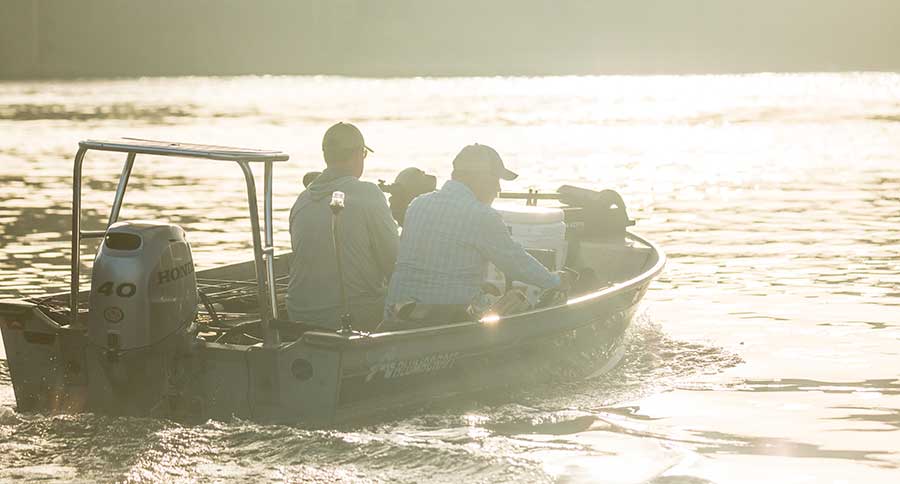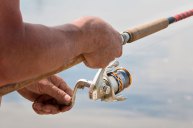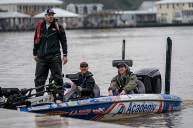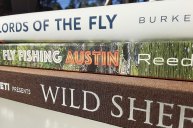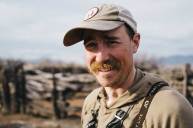Wide Open Spaces spoke with MeatEater's Director of Fishing Miles Nolte, and learned of his lofty but admirable goals in the angling media industry.
Miles Nolte has something in common with his MeatEater compatriots. It's something that we wouldn't be too surprised to learn it sits on the "Requirements" list of the job description.
If you want to have a gig with the outdoor legacy that's being built inside the MeatEater walls, you'd better be damn well self-assured.
Not in a negative sense; it just seems you need a strong can-do attitude that makes it hard to settle and tough to give in on the things you stand for.
That rang clear early in my conversation with Nolte, and he came across as the type of guy anyone would like in their camp, be it fishing or business.
"I've been pretty fortunate in my life," he said over the phone recently, "in that I've had the luck to be confident enough, or cocky enough, to think that I can pull things off without a whole lot of evidence that suggests that was possible. I just kind of ran ahead with things."
https://www.instagram.com/p/B2MVdplFJM5/
One of those things is the goal of his work as MeatEater's Director of Fishing, which in his words is "telling good stories and being connected to the culture and lifestyle of fishing."
Nolte expressed some concern about the fishing industry, made it known that he's setting out to improve it, and wants to ensure the best stories are told in the best possible ways.
In other words, he's pulling the rope in the right direction.
But it had to start somewhere. He got to the point that many of us reach, when you embark on a journey, both physical and psychological, to find something that clicks.
"I'd saved up some money and wanted to kind of figure out what my next move was," he said. "So a buddy of mine and I decided to take a road trip, where our two primary and parallel goals were to visit as many rivers we could fish and visit as many breweries as we could. And strangely enough, those two things line up quite well."
Things really sparked with that dedicated road trip, and if your eyebrows don't rise at the thought of such an experience, you've got some priorities to adjust. That's just my opinion, and definitely Nolte's, too.
They made it from California to coastal Maine and back "just sleeping in the dirt and in our truck, fishing as much as we could and drinking beer in a lot of different, beautiful places."
He made a move to Bozeman, Montana, and realized the potential to make a living in the fishing industry, getting to further experience it while writing about it along the way. He moved through the freelance spectrum, went to Alaska to guide at a wilderness lodge for a while, and wrote "The Alaska Chronicles."
https://www.instagram.com/p/Bt7fBRhAuWT/
"That helped jumpstart my writing career significantly," Nolte said.
He continued writing and publishing, leading up to a position as fishing editor at Gray's Sporting Journal.
"That was the moment where it all kind of crystalized for me," said Nolte. "I had obtained this dream of mine, to be a columnist and editor at one of the most premier literary and fishing magazines that has ever existed. Like, this thing that I had read my whole life and looked up to, I'm now a part of that."
He fulfilled that role, maintained a writing instructor position at Montana State, and ran a guide business in the summers.
That led to MeatEater calling, which he says gave him the opportunity to really dig in and take a role that aligns with what he'd been thinking all along.
He called it "absolutely a dream come true, and from a professional level, an opportunity that I could not even consider passing up."
The perspective on furthering fishing media is both "timely and exciting," Miles said, and he's hit the ground running by directly addressing some of the bigger goals he's working to accomplish.
Nolte stressed that the accessible fisheries deserve as much, if not more focus than the exotic, expensive, yearned-for adventures that fishing media often zooms in on.
"We have incredible aquatic resources right here in our backyards," he elaborated. "The vast majority of America live within 30 minutes of a place they can go fishing, and we fail to tell those stories well on a regular basis. That is one of my top priorities."
He says he's willing to talk about some of the things the fishing media industry has shied away from.
The concept of harvest, as opposed to the long-running catch-and-release mentality, is something that needs more perspective and more emphasis, according to Nolte.
"For so long, fishing media has been nothing but 'Kill everything I can with the goal of filling a limit' or 'Never kill anything at all,'" he said. "It's the middle ground that people really want to see themselves, and for me is a more fulfilling way to interact with the resources."
https://www.instagram.com/p/Bt9mK-ygt8t/
He also made it a point to emphasize a silo polarization of people in terms of the gear they use, and more specifically the tribal and segmented methods of dry fly fishing, or throwing big swimbaits or any other combination of style and preference. He says it isn't necessary to break it down to either/or, though.
"It doesn't mirror what I see in the culture," he said. "There's a lot of different ways to do it, and a ton that you can learn depending on what your goals are and what you enjoy doing."
What a novel thought, huh?
With those as his main objectives and MeatEater resources at his back, he's glad to be embarking on another part of his fishing journey.
But how would he pull it off? The fishing miniseries "Das Boat" on YouTube was a significant part, and a big project Nolte is hanging his hat on. It let people know that MeatEater was doing fishing things, and doing them for real.
A self-described boat guy, Miles took the idea of passing along a craft to the next angler as far as he could imagine. It was about the trip, and seeing if the boat would make it to the end, that made it can't-miss material.
"I wanted to build a show where the main character was a boat, and all of that was completely authentic," he said. "I literally bought that boat off of Craigslist from some random dude in Texas while I was sitting in our office in Montana, going 'God, I hope this works. I hope that thing floats. I have no idea what we're getting into!'"
But of course, it worked.
"We knew we wanted to bring a lot of different anglers together with different personalities," Nolte said. "We knew we wanted to focus on a lot of different kinds of fisheries, we knew we wanted to highlight some conservation issues that were important to us, and this boat became the vehicle that let us do all those things."
Production happened quick, in "the tightest, most insane turnaround for a project of this scope" that Nolte had ever witnessed, and it helped cement the fishing values he had in mind all along.
The return is already showing itself, with great view counts and feedback on "Das Boat" from both dedicated MeatEater fans and outsiders alike.
"People get it, they understand what we're trying to do," he said. "We just sent people out and said 'Go fishing.' We said we're not going to build this around times of year when it's going to be the most amazing. We want you to take the boat fishing, we want you to have great conversation, we want you to have a good experience, and we want to represent that story. And here's hoping we get some fish along the way, which is how most of us go fishing."
That statement summed up why "Das Boat" saw success, enough to justify a second season of the show.
It's these supplemental pieces of MeatEater the brand, beyond the Netflix series, that Nolte says help expand and solidify the overall message. There's a lot to look forward to coming out of the company, and he's psyched to be a part of it.
"People care about people, and stories about people," he told me. "Fish are interesting only in so much as they allow us to tell a more meaningful, well-rounded story involving people."
If there's one thing he seemed to feel most passionately about, it was that storytelling angle, and it helped bring our talk full circle.
"You can get into it even if you don't have any mentors, even if you don't have access to land. You can go fishing with minimal sacrifices and minimal investment," he said. "From there, who knows where you wind up? For me, that's the potential fishing has."
We should stay aware of and take action on the things that inspire us, but it's the positives of fishing that will win out and carry us through. The more you learn about Miles, the more this sentiment seems to hold true.
NEXT: CATCHIN' UP WITH CATCHIN' DEERS: WIDE OPEN SPACES SPEAKS WITH FORMER NHLER MIKE FISHER
WATCH
